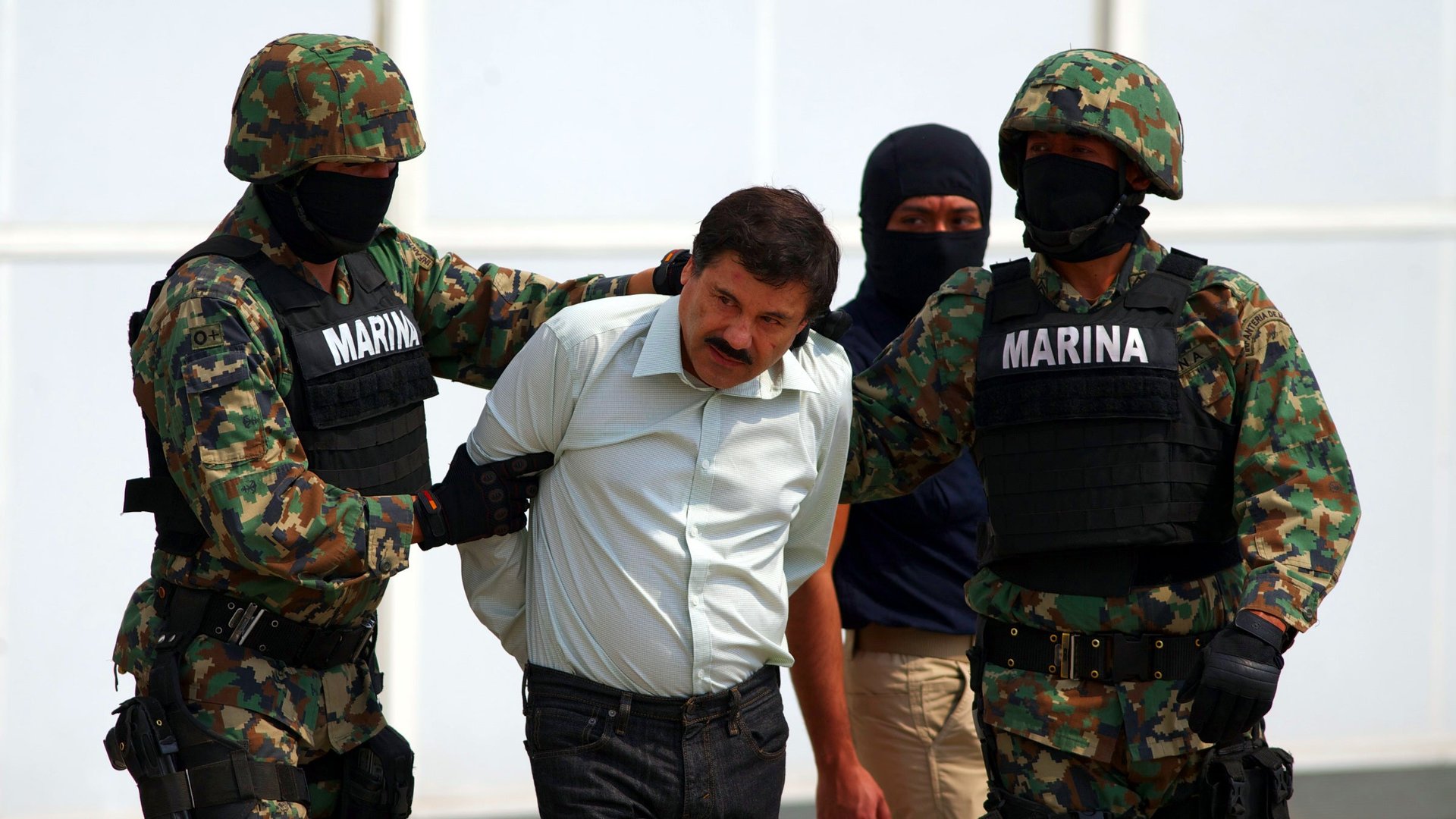Will the capture of the world’s most powerful drug trafficker change anything?
After the capture of Joaquín “El Chapo” Guzmán, head of the world-spanning Sinaloa drug cartel and a cagey escape artist who spent over a decade as a fugitive, Mexican law enforcement released a photo of soldiers surrounding the bedraggled drug peddler (see above). It was reminiscent of this picture of former Iraqi dictator Saddam Hussein after he, too, was seized by soldiers after a long manhunt.


After the capture of Joaquín “El Chapo” Guzmán, head of the world-spanning Sinaloa drug cartel and a cagey escape artist who spent over a decade as a fugitive, Mexican law enforcement released a photo of soldiers surrounding the bedraggled drug peddler (see above). It was reminiscent of this picture of former Iraqi dictator Saddam Hussein after he, too, was seized by soldiers after a long manhunt.
It’s not a rosy parallel: Capturing Guzman serves justice and may bring closure to the victims of his organization’s violence, but just as Hussein’s capture did not put an end to the insurgency in Iraq, it’s not clear Guzmán’s arrest will put a stop to drug violence or do much to shut down his deadly cartel.
Guzmán has been a top target for so long—certainly since 2001, when he escaped detention in a prison laundry cart—because of how good he is at his job. His life’s work has been to build the Sinaloa cartel into the world’s most efficient drug business, with billion-dollar revenues to rival Western blue-chip companies; he earned comparisons to CEOs for mastering the art of supply chain management, exploiting the massive demand for illegal drugs in the United States and Europe. He’s a key example of the power of so-called “deviant globalization.”
But it’s precisely this level of sophistication that has experts predicting the Sinaloa cartel will survive its mastermind’s detention; if Guzman is the Steve Jobs of coke, he probably groomed a Tim Cook to take his place. Perhaps even more worrying is past experience—following previous crackdowns on the largest, well-organized drug businesses, smaller, more violent splinter groups have cropped up in their place, often led by lieutenants battling over their former leader’s turf.
Modern militaries, police forces, and intelligence services have shown that when they want to get their man, they can—consider the United States’s long run of finding and executing third-ranking operatives in Al Qaeda. While those strikes degraded the terrorist group as an effective organization, they did not eliminate the ideology and circumstances behind its existence. An even more powerful motivator than ideology is money, and capturing Guzman isn’t going to change the fact that the price of cocaine in the United States is fifty times the cost of making it in central and South America.
Nature abhors a vacuum, and markets—both in the open and in the shadows—abhor a profit unrealized. Air, and entrepreneurs, rush in.